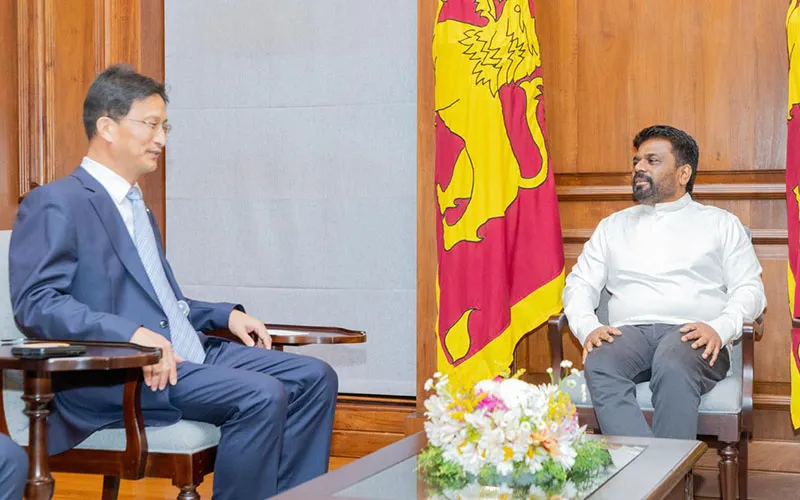Sri Lanka’s government, led by President Anura Kumara Dissanayake, is making bold strides in economic diplomacy, leveraging strategic partnerships with global powers to address immediate economic needs and pave the way for long-term prosperity. Recognizing the importance of trade and investment in an interconnected world, the President has prioritized building stronger ties with nations capable of driving multi-billion-dollar investments.
India has played a crucial role in Sri Lanka’s recovery from its 2022 economic crisis, providing nearly $4 billion in financial assistance. During a recent visit by President Dissanayake, India announced a $14.9 million grant to modernize a key railway segment, alongside initiatives to support education and civil service training in Sri Lanka. Both nations also agreed to accelerate the implementation of a digital identity project to support governance transformation, while expanding the use of India’s UPI payment system in Sri Lanka to boost tourism and economic activity.
China, another vital partner, has offered significant investment opportunities, including a $3.7 billion agreement with Sinopec to establish a modern oil refinery geared for exports. This long-delayed project is now moving toward implementation under the current administration. Chinese investors have also expressed interest in injecting $10 billion into Sri Lanka, contingent on the creation of a favorable investment climate. By reaffirming its commitment to the One China Principle, Sri Lanka has strengthened trust with China, paving the way for further economic cooperation.
The UAE is set to play a key role in enhancing Sri Lanka’s energy security. President Dissanayake is planning a visit to explore trade and energy collaborations, including a multi-product petroleum pipeline linking India and Sri Lanka with UAE involvement. Plans to develop the Trincomalee oil tank farm and secure a government-to-government deal for petroleum products aim to reduce fuel costs and stabilize the economy.
Sri Lanka’s strategic location along the world’s busiest shipping routes gives it significant maritime importance, which the government is leveraging to attract investments. The Sinopec project has the potential to position Sri Lanka as an energy hub for the region, an opportunity that remained unrealized under previous administrations due to inefficiencies in decision-making.
President Dissanayake’s proactive approach reflects a clear focus on economic diplomacy, using strategic partnerships with India, China, and the UAE to address immediate challenges while creating a foundation for sustainable growth. The government is actively working to establish a competitive, transparent environment to attract investors, recognizing that domestic reforms and efficient governance are essential to realizing Sri Lanka’s economic potential.
Balancing relationships with global powers like India and China, which compete for influence in the region, will be critical for Sri Lanka’s success. As the country leverages its geographic and strategic advantages, its ability to maintain balanced foreign relations while pursuing economic ambitions will determine its future prosperity.




